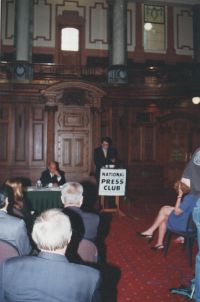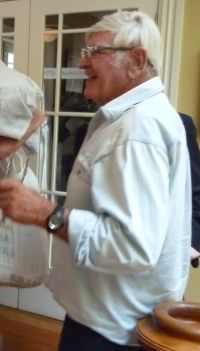Fairfax –APN New Zealand Merger Must Focus on Unified Christchurch Print Hub

Up up and away from Auckland (and Wellington)
Napier, MSCNewsWire, 17 May 2016 - Airfreight will determine the cost-efficiency and thus the success of the pending merger of the New Zealand subsidiaries of the Australian Fairfax and APN media chains which must now look to the skies for the mechanical economies of scale they know they must now find.
As it is the sparsely populated New Zealand is host to the two chains’ scattered printing plants strung out in a line between Auckland and Dunedin.
The opportunity exists for a forwarder to present the merging group with a scheme that would allow it to consolidate all its mechanical activities into one site.
A case for Christchurch would be the forwarder’s master stroke.
A problem for the two chains is the constant pre-occupation with three dimensional mechanical production issues at the expense of the idea ones, the ones that do not require capital investment, and which are central to success in the internet age.
In the event much of the Auckland and Wellington dailies are early material anyway with their sports updates, soft-peddle business re-hashes, generic environmental stories, and columns by local celebrities usually talk-back types presenting their glimpses of the blindingly obvious, along with political activists. Their vehicle, travel and property supplements meanwhile are hardly of hold the front page grade urgency.
A problem for the two subsidiaries is that in the past they have found it hard to cooperate and this curiously has become more evident in a shrinking market.
There was their failure to cooperate in the matter of the TradeMe acquisition. Indeed a suitable study for one of their question-marked “investigative” pieces might be entitled – What has the Newspaper Proprietors Association Been Doing?
In fact the NPA, as it is known, was the victim of its own success in the matter of cashing in at the height of the market on its collective shareholding in Reuters.
The old family proprietors trousered their winnings and sensibly left the field to the two Australian chains.
Enter now the problem of representatives around the NPA table who were several steps removed from the real decision-making which of course now took place in Australia. They were in the position of being policy implementers rather than policy makers.
There began to emerge a distracting preoccupation with things such as scholarships and also with an increasingly proliferating and bizarre swathe of awards.
Curiously, too, the emphasis went on makeup hubs at a time when subeditors and other process journalists can efficiently work from their own kitchen tables.
The Christchurch Press Johns Road printery adjacent to the South Island’s international-grade airport indicates that such an eventuality may have been anticipated.
But experience indicates localised pre-occupations with mechanical processes of the type that have become near-irrelevancies in the compoundingly disruptive internet age.
















